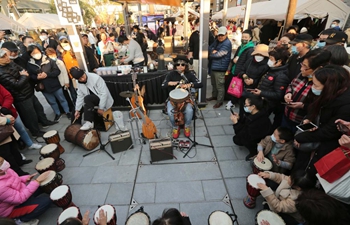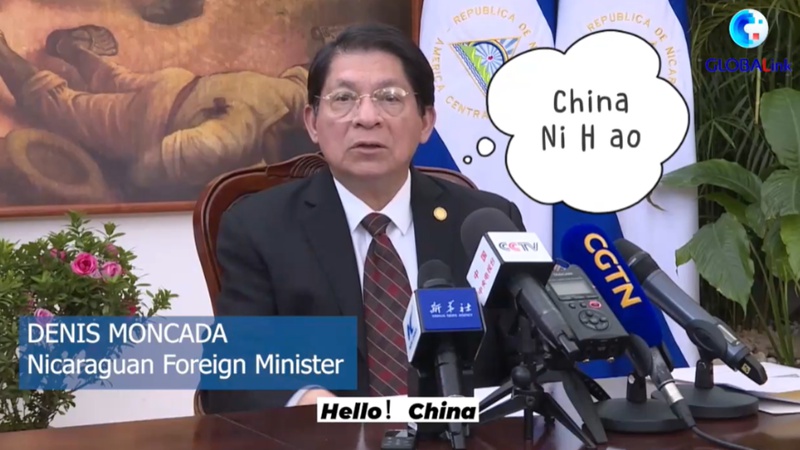TOKYO, March 11 (Xinhua) -- Japan on Wednesday marked the ninth anniversary of a powerful earthquake-triggered tsunami, which obliterated swathes of the nation's northeastern seaboard leaving more than 15,000 people dead and triggering the worst nuclear crisis since the 1986 Chernobyl disaster.
But due to the outbreak of the coronavirus, a ceremony held in Tokyo and supported by the government was cancelled for the first time since 2012, although Japanese Prime Minister Shinzo Abe said he will deliver a national address from his official residence and observe a moment of silence.
Areas hardest-hit by the triple disasters, including Fukushima, Iwate and Miyagi Prefectures have cancelled or greatly scaled back ceremonies that have in the past been held to offer prayers for the lives lost and hopes for the future recovery of lives affected in the devastated regions.
As the government requests that large gatherings be avoided amid the COVID-19 outbreak, alters will be set up in these areas so individuals can offer their prayers and lay flowers intermittently during the day.
Evacuation orders have been lifted in the majority of areas in Fukushima Prefecture and more than 90 percent of housing for those forced to live in temporary shelters and facilities in the wake of the disasters across the three hardest-hit regions have been completed.
However, those still living in makeshift housing at the end of January stood at 740 people in the three prefectures, with the number of displaced people dropping from the highest level of 470,000. Some 48,000 people, however, have still not returned to their hometowns since the disasters struck.
Overall, the triple disasters have claimed the lives of a confirmed 15,899 people as of March 1, according to the National Police Agency (NPA), with 2,529 still considered missing or unaccounted for.
The government has said it will maintain the operations of the Reconstruction Agency that was formed a year after the disasters to ensure that reconstruction work proceeded in a coordinated and consolidated fashion.
But concerns are rife that Tokyo Electric Power Company Holdings Inc., the operator of the crippled nuclear plant in Fukushima that underwent multiple meltdowns after being hit by a 9.0-magnitude earthquake-triggered tsunami and the government will be unable to follow the timeline for decommissioning the crippled plant.
One point in case was the decision made in December to delay the removal of spent nuclear fuel at two of the plant's reactors by five years to March 2029.
The likelihood is that the overall decommissioning of the plant will take decades, with some locals continuing to languish in the wake of the triple disasters.











